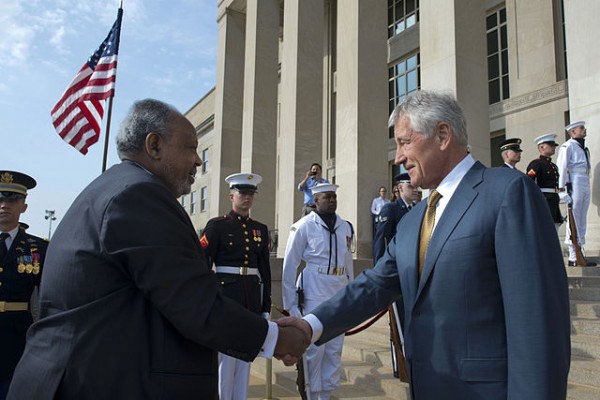
The following is a response by the government of Djibouti to the Oct. 17, 2014 post “China’s war for Africa’s hearts and minds”
Djibouti has strong relationships with a wide range of governments and international organizations in matters relating to economic and social development and regional security. This includes various partnerships with countries such as the U.S., EU and GCC nations, Japan and China, and with international organizations such as NATO, the World Bank and the U.N.
Djibouti has had diplomatic ties with China for 35 years and it is natural that the country has continued to build its relationship the world’s largest economy over recent years. They are an important investor in Djibouti and across the region, and as well as investing in key infrastructure and other sectors such as energy and agriculture, they have also committed to supporting a number the country’s education and healthcare development initiatives. They have also deployed anti-piracy task forces to the Gulf of Aden since 2008.
Furthermore, in March 2014, the U.S. National Security Advisor Susan Rice thanked the country for its leadership on a range of issues, including countering terrorism and piracy, and responding to humanitarian emergencies. President Obama reiterated this message in his meeting with Djibouti’s President Guelleh in May 2014, particularly focusing on Djibouti’s role in supporting Somalia.
The government of Djibouti is committed to continuing to work with a wide range of international partners to attract inward investment and maintain regional stability.
On “authoritarian President Ismail Omar Guelleh purging political opponents”
The International Election Observer Mission, including representatives from the African Union, declared 2011’s presidential election as peaceful, fair and transparent. In 2012, the opposition in Djibouti won local elections for the first time and currently control two of the three municipal councils in the city of Djibouti. Parliamentary elections in February 2013 marked a new milestone in the strengthening of Djibouti’s democracy, with the introduction of a semi-proportional electoral system to ensure broader political representation. The four international observation missions as well as major Western embassies, including the U.S. and France, all concluded that the elections were peaceful, free and fair. Negotiations are ongoing at the moment with the opposition to encourage them to take up their seats in parliament and participate in the democratic system, for the good of the people of Djibouti.
With regards to issues relating to the Doraleh Container Terminal, in 2002 the Government of Djibouti created the Djibouti Port and Free Zone Authority (the DPFZA) to oversee and supervise all port facilities. In 2003, the Government appointed Abdourahman Boreh, a Djiboutian businessman, as Chairman of the DPFZA.
During his time as Chairman between 2003 and 2008, Mr. Boreh obtained significant shareholdings in several of the projects; awarded construction, security, and other service contracts on these projects to companies he owned; and demanded commissions from other individuals and companies involved in the projects.
Mr. Boreh left the country to avoid his significant tax liabilities. He was never a true presidential candidate, being ineligible as he holds dual Djibouti and French nationality, and never a political figure. He was subsequently convicted in Djibouti for tax evasion, fraudulent insolvency, and related criminal offences. After the government learned of Mr. Boreh’s illegal activities, it launched a wider investigation, leading to a claim being commenced in the Commercial Court in London in 2012.
The government’s continued investigations revealed evidence indicating that DP World paid bribes and gave other financial incentives to Mr. Boreh while he was a negotiating the Doraleh Container Terminal Concession Agreement with DP World, as well as afterwards. Mr. Boreh had been appointed as the government representative in those negotiations to protect Djibouti’s interests. The resulting agreement unfairly favored DP World.
Although the government of Djibouti sought to resolve the matter through direct discussions, negotiations broke down, leaving Djibouti with no choice but to request arbitration to declare the Concession Agreement and related project documents rescinded for illegality and corruption. This arbitration process is ongoing. Pending the outcome of the arbitration being heard in London, DP World is continuing to run the facility.